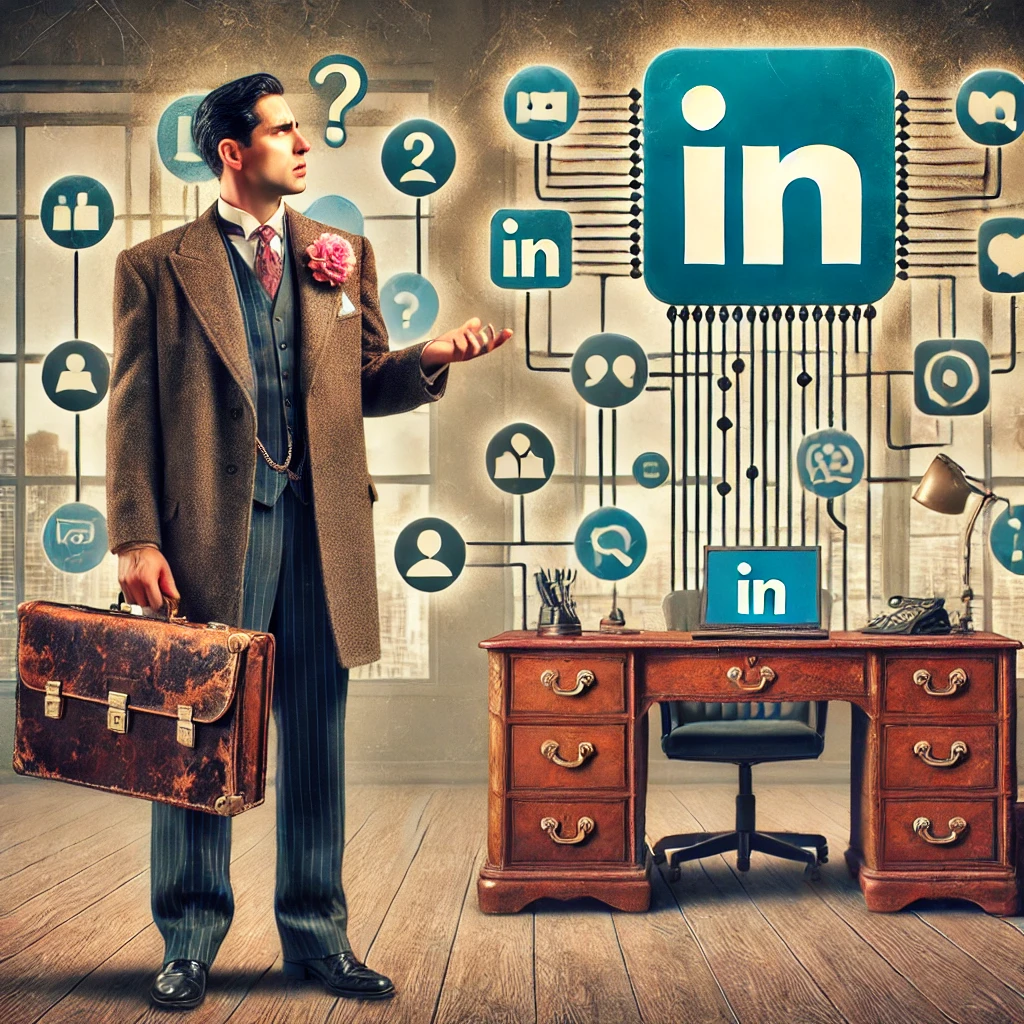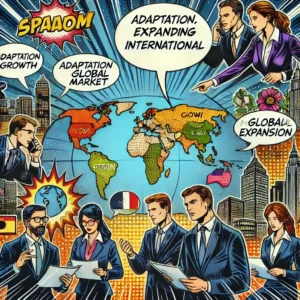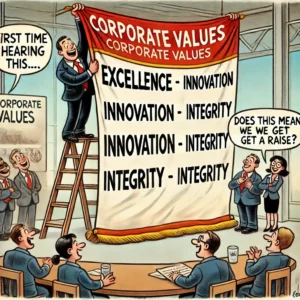
Seasonal Sales Strategy: Make the Most of Spring
Spring is a strategic time to boost your business. Discover how to align your sales efforts with seasonal cycles and turn the transition into a growth driver.
By Caroline Alié – December 2, 2024

“Technology is a great servant, but a poor master.” In 2025, this quote resonates deeply in the sales world. While digital tools like CRMs, artificial intelligence, and task automation have revolutionized our practices, they seem to have reached their limits. Clients, overwhelmed by impersonal emails and standardized interactions, are expressing a growing need for authenticity and human connection.
So, have we gone too far in the hyper-digitalization of sales processes? Are we losing what has always been a great salesperson’s strength: listening, exchanging, and building lasting trust?
At Finelis, we’ve noticed a significant trend: traditional sales methods are making a strong comeback. Why? Because they address fundamental client expectations, often overlooked in a technology-dominated world. Today, let’s explore together the reasons behind this shift and what it means for businesses seeking sales performance in 2025.
In recent years, digital tools such as CRMs, artificial intelligence (AI), and automation have become essential pillars of sales management. These technologies provide remarkable operational efficiency, enabling companies to handle large volumes of data, streamline their processes, and optimize prospect follow-ups.
However, while these solutions are powerful allies, they can also become obstacles when misused. By multiplying automated emails, standardized messages, and uniform workflows, some companies risk making their clients feel like numbers rather than individuals.
🔗 Learn more about optimizing contact management with CRM in our article: Manage Your B2B Contacts Dynamically with a CRM.
By prioritizing automation at all costs, companies risk creating impersonal client relationships. Prospects often receive generic emails lacking relevance and human warmth. This overload of automation not only hinders the first impression but also fosters a sense of disengagement.
Studies indicate that in 2025, clients prefer brands and companies that demonstrate a personalized approach. While digital tools excel at collecting and analyzing data, they often fail to establish the emotional connection essential for building client loyalty.
Growing Client Disengagement
With the proliferation of digital tools, prospects have become increasingly wary of overly formatted sales techniques. They quickly recognize when an email or interaction follows a pre-designed template that fails to adapt to their specific needs. This lack of personalization creates an emotional disconnect, directly impacting the brand’s perception and the willingness to engage.
Recent studies reveal that nearly 70% of prospects ignore emails they perceive as automated. Furthermore, standardized messages that fail to consider client-specific details can result in a lasting loss of trust. Loyalty depends primarily on the ability to meet the unique expectations of clients—something that cannot be entirely delegated to tools.
In summary, while hyper-digitalization is effective for certain tasks, it has limitations when it comes to building high-quality human relationships. A return to traditional methods, enriched by a measured use of modern tools, seems to be the key to meeting client expectations in 2025.
In 2025, prospects are no longer just looking for a product or service; they want a human experience. The era of standardized interactions has given way to a strong demand for authentic relationships. Clients want to feel heard, understood, and genuinely valued in their unique needs.
In this context, traditional methods are regaining relevance. They help establish trust-based relationships and meet specific expectations—an area often neglected by automated tools.
Active listening has become a major competitive advantage. When a salesperson takes the time to understand a client’s challenges and ask relevant questions, they establish a strong emotional connection. This approach contrasts sharply with standard messages perceived as impersonal and can transform a skeptical prospect into a loyal partner.
🔗 To learn more about the importance of a client-centric strategy, check out our article: Customer-Centric Strategy: The Essential Approach to Retain Clients and Boost Sales.
Nothing can replace a face-to-face meeting, a personalized phone call, or even an on-site presentation. These interactions allow salespeople to capture emotional nuances, adjust their approach in real time, and address objections with empathy.
In sectors such as real estate or B2B, where decisions often involve significant financial or strategic stakes, these human interactions remain critical. Clients want to see the faces and hear the voices behind the brand’s promises, fostering a stronger sense of trust and connection.
While artificial intelligence can generate content on a large scale, it cannot compete with the human ability to tell authentic stories. A carefully chosen anecdote or a genuine client success story can touch the emotions of prospects and help them envision a successful collaboration.
Consider a salesperson assisting a company in its digital transformation. By sharing the story of a previous client who overcame similar challenges with a comparable solution, the salesperson humanizes their pitch and strengthens the credibility of their offering.
The result? A deeper emotional connection and a higher conversion rate.
In conclusion, traditional methods, with their focus on listening, personalization, and emotions, meet a profound need among clients. By combining these approaches with modern tools, businesses can maximize their impact while standing out in an increasingly saturated market.
The efficiency of modern tools like CRMs is undeniable. They help centralize client data, analyze purchasing behaviors, and plan targeted actions with precision. However, while CRMs excel in organizing and processing information, they fall short in establishing a lasting emotional connection with clients.
This is where traditional fundamentals come into play. Human interactions—whether via phone or face-to-face—offer a unique opportunity to build trust and loyalty. By combining these two approaches, businesses can enhance both their operational efficiency and their emotional impact.
Technology should not replace human interaction but rather complement it. A well-utilized CRM can provide sales teams with valuable insights into prospects’ needs and expectations even before the first interaction. These insights enable personalized exchanges, anticipate objections, and offer tailored solutions.
In practice: Imagine a salesperson preparing for a meeting using a prospect’s historical data stored in the CRM. Armed with this information, they can approach the prospect with a highly relevant proposal while maintaining an authentic and human approach.
🔗 To explore more strategies tailored to B2B sales, visit: B2B Sales: Solutions and Advice by Finelis.
At Finelis, we have developed a hybrid approach that combines the best of modern tools with traditional techniques. Our solutions are tailored to the specific needs of each business, offered at three levels of intervention:
Through these approaches, we ensure a seamless integration of technology and human touch, helping businesses achieve their goals while creating lasting client relationships.
Thanks to this methodology, we ensure a seamless integration of technology and humanity. For instance, a company can use a CRM to optimize prospect management while benefiting from our expertise in storytelling and active listening.
By combining modern tools with strategic human interactions, businesses can not only achieve their sales objectives but also differentiate themselves sustainably in a competitive market.
In conclusion, this hybrid evolution is not a compromise but a synergy that meets the demands of today’s market. At Finelis, we believe the future of sales lies in this balance between technological innovation and human tradition.
In 2025, successful businesses are those that place the client at the center of their strategy. While digital tools can collect valuable data, direct interactions remain essential to decode each client’s specific expectations.
Active listening during a meeting or phone call allows salespeople to ask targeted questions and better understand individual challenges. Combining this deeper understanding with tailored solutions enables businesses to respond more effectively and increase their conversion rates.
Client loyalty is not based solely on high-quality products or services but also on the ability to establish a lasting trust-based relationship. Traditional methods, such as regular follow-ups or personalized exchanges, demonstrate an authentic commitment that goes beyond digital interactions.
Companies that adopt a customer-centric strategy position themselves not just as providers but as trusted partners.
In a constantly evolving environment, sales coaching is an essential investment. To maximize their effectiveness, sales teams need to master the fundamentals of selling:
These skills enhance the impact of human interactions while leveraging technological tools to prepare and structure exchanges.
For many businesses, outsourcing their sales management or specific steps in the sales process can be a strategic move. Outsourcing offers several benefits:
At Finelis, we offer customized sales outsourcing solutions that combine human expertise and technology to ensure optimal performance. Learn more by reading our article: Outsourcing Sales Management: A Winning Strategy.
In summary, 2025 marks an era where modernity and tradition coexist harmoniously. Businesses looking to stand out must adopt a customer-centric approach, invest in team training, and consider outsourcing solutions to stay agile and competitive.
In 2025, successful businesses understand that commercial performance doesn’t rely solely on modern tools or traditional techniques but on a balanced synergy between the two. Tools like CRMs offer unparalleled efficiency, but it’s through human interactions—active listening, storytelling, and personalized meetings—that trust-based relationships are built and maintained.
Returning to the fundamentals of sales doesn’t mean abandoning technology. Instead, it means using it to enrich and prepare exchanges that are more authentic and impactful.
At Finelis, we understand the importance of this balance. With our sales outsourcing solutions and tailored approaches, we help businesses:
Looking to take your sales to the next level? Explore our services and solutions tailored to your needs.
Take it a step further with our exclusive white paper:
“The Ultimate Guide to Successful Sales Prospecting.”
This guide is packed with practical advice and real-world examples to help boost your prospecting strategy while staying authentic and effective. Download it for free today on our dedicated page:
Access the Finelis White Paper.
Let’s reinvent your sales practices together for a more successful and sustainable future.

Spring is a strategic time to boost your business. Discover how to align your sales efforts with seasonal cycles and turn the transition into a growth driver.

Attending a trade show is a powerful business opportunity. Discover how to maximize your impact with strong preparation, engaging techniques, and structured follow-ups.

Expanding internationally means adapting your company’s DNA without losing its essence. Learn how to structure your offer, refine your message, and build strong partnerships for success.

Are corporate values truly a performance driver, or just a marketing argument? When aligned with a coherent sales strategy, they become a powerful lever for growth and customer loyalty. Discover how to structure an effective approach to bring meaning to your values and turn them into a real asset.

Discover how to reinvent your sales strategies after Covid with a hybrid approach that blends tradition and digitalization. Learn how to outsource effectively, adopt a customer-centric approach, and develop essential sales skills to maximize your performance.
Innovation is a key lever for turning challenges into opportunities. With logistics solutions like KWiiD and Hipli, your business can reduce costs, enhance environmental commitment, and maximize commercial performance.